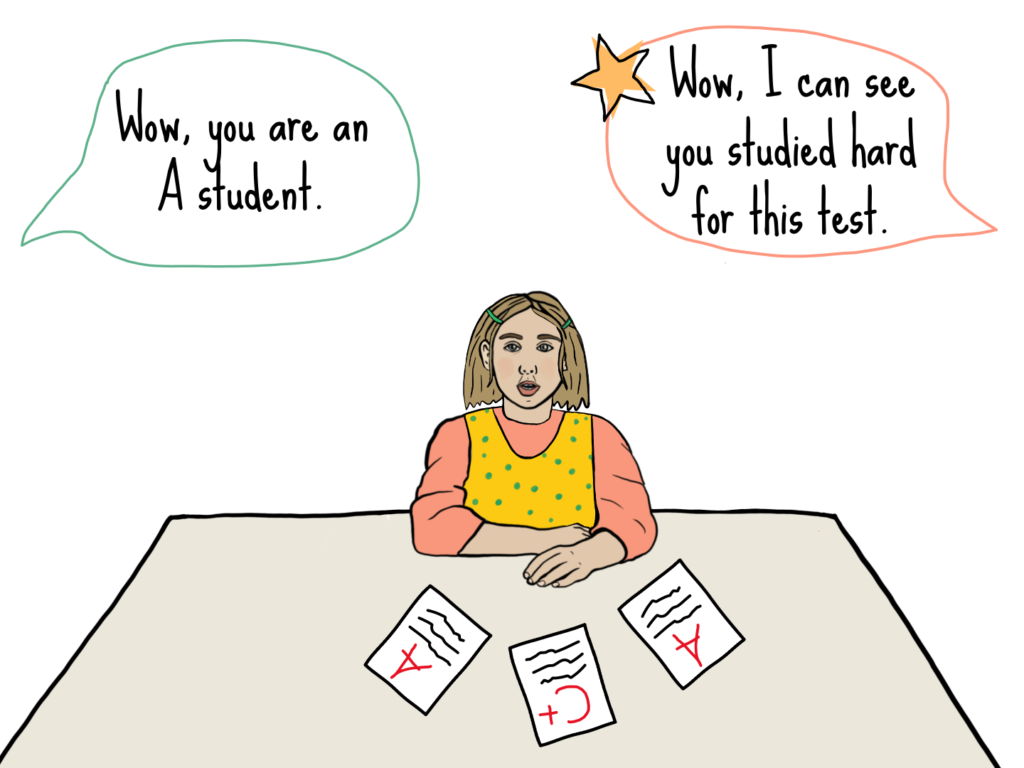
There are still further ways of helping children achieve a positive sense of self, especially when it comes to learning. Learning involves challenging yourself, and one of the things a healthy sense of self can do is to allow you to keep on going when things get tough. One way to help children recognize that difficulties are not failures is to praise their effort. This is an idea pioneered by the scientist and educator Dr. Carol Dweck, as a way of promoting a ‘growth mindset’ in the child. It works like this:
Imagine a child completes a task – gets an A on a test. An adult might say something like, ‘Wow, you are an A student.” Scientists call this person praise, because the adult is praising the person for their achievement. By doing this, the adult is communicating to the child that they are the kind of person who always gets A’s on a test. The next time, if the child gets a C, the child may feel that they are not a good student. This can be really discouraging.
If, on the other hand, when a child gets an A, the adult says something like, “Wow, I can see you studied hard for this test,” it sets up a situation where the child can be proud of their effort, proud of how hard they worked. Scientists call this effort praise, because the adult is praising the effort the child put in and is not labeling the child as being an A student.
Effort praise allows children to push through difficult periods even when what they did or accomplished doesn’t quite line up with their goal. These situations are inevitable, we all make mistakes as we learn. Praising the effort that children put in, instead of the outcome, helps children see that the more important thing is that they tried. They worked hard, and they can rightfully feel good about that.
-
- Academic sense of self
- how a person thinks of themself as a student
- Bias
- the belief that some people or ideas are better than others, usually resulting in unfair treatment
- BIPOC
- Black, Indigenous, people of color
- Conscious
- thoughts or feelings that we are aware of
- Growth mindset
- the belief that, with effort, you can learn and achieve new things.
- In-group preference
- the tendency to form close relationships with others in a person’s same groups
- Self-esteem
- a cluster of characteristics, such as feeling confident, having pride in oneself, and a sense of self-worth
- Sense of self
- how a person thinks and feels about their self
- Stereotype
- a widespread belief that a person must have a trait because they belong to a particular group
- Unconscious
- thoughts or feelings that we are unaware of